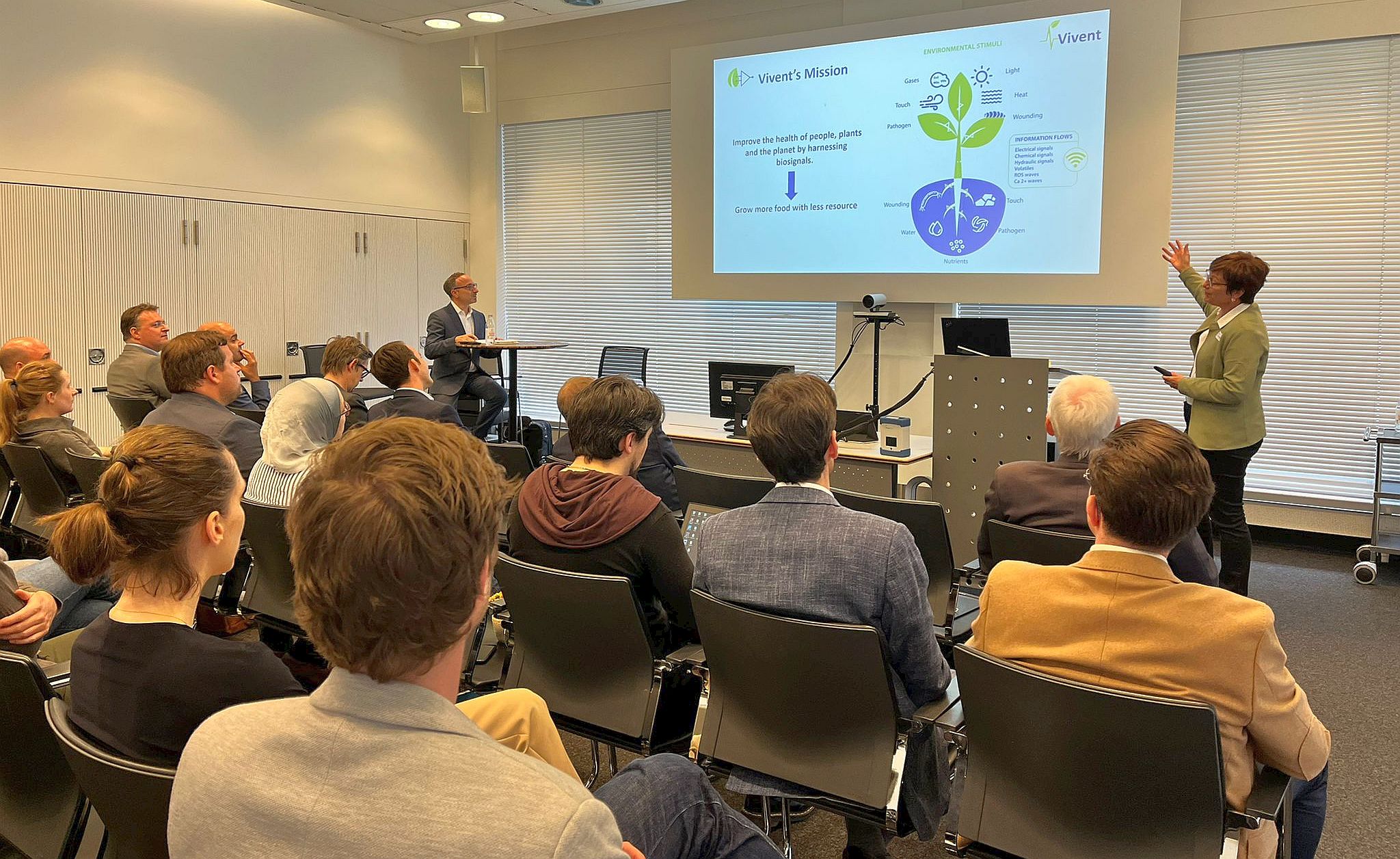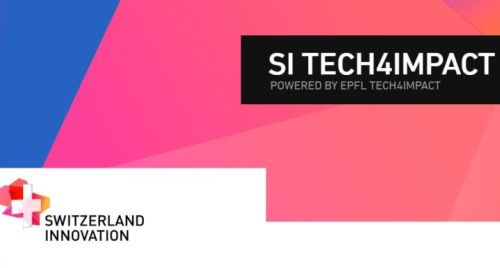
The second edition of the Switzerland Innovation Tech4Impact initiative, offering a CHF 85,000 grant to each team, culminated in a demo day with six start-ups presenting their solutions for recycling composite materials, efficient heat storage, and foam production from biowaste. With major advancements made during the program, some start-ups plan to implement their solutions in pilot projects, and others will build on their progress moving forward. A new call now seeks to accelerate a further six projects.
The Switzerland Innovation Tech4Impact initiative aims to help pioneering innovation projects achieve a breakthrough by addressing one of the six highlighted UN Sustainable Development Goals. The initiative awards six selected projects with a one-year project grant of CHF 85,000 each. Eligible to participate are projects with advanced technology that will reach maturity and application within the next three years. The second call, organised with the E4S team from EPFL, Uni Lausanne and IMD conjointly with collaboratio helvetica, concluded last week with a Demo Day. The event brought on the stage six start-ups to present their solutions and their progress during the one-year program.
The following project advancements were presented:
Composite Recycling – To this day, composite plastics used in ship hulls and wind turbine blades are built to be durable but not recyclable. This results in waste after the material’s end of life, mainly because separating the glass fibres from the resin is difficult. Lausanne-based start-up Composite Recycling developed a specific pyrolysis process to recycle and reuse composite materials. The SI Tech4Impact grant, the start-up’s first external funding, was used to hire a postdoc (Nour Halawani) at EPFL to develop a post treatment process to clean and prepare the glass fibres recovered from our pyrolysis reactor for resale. “This was a key process lacking in previous attempts at our competitors’ pyrolysis of glass fibre composites. This process has not been commercialised yet,” says Mitchell Anderson, CTO and co-founder of Composite Recycling. For the next steps, the start-up is working on a strategic partnership with a large glass fibre manufacturer and seller to develop the infrastructure to sell the recycled glass fibre in bulk.
Vivent – After five years of research, the Vivent team kicked off the sales phase of its technology that helps growers monitor plants’ health to improve yield and sustainability in 2020. Today the start-up serves over 55 customers worldwide, with sales increasing. During the program, Vivent and its team of 17 employees developed the next generation of its hardware designed specifically for crops grown outdoors. Presented during the Demo Day, PhytlSigns Scout is a smaller, cheaper and more convenient plant monitoring system designed for larger fields and glasshouse installations. The start-up had focused on indoor farming, such as glasshouses and vertical farms, helping indoor farmers optimise growing conditions so that they do not overwater or fertilise. The solution allowed for the early detection of crop stress and choosing the most environmentally preferable crop protection treatments.
“To have a big impact on the sustainability of agriculture, we need to work with outdoor crops”, comments Carrol Plummer, CEO at Vivent. “Without the program we would not have been able to engage with HEIA-Fr (Haute école d'ingénierie et d'architecture de Fribourg). They played a crucial role in investigating novel, sustainable power sources for our outdoor sensors. Their expertise is helping ensure we complete a thorough tradeoff analysis and then design our new product using advanced thinking about technical hardware design.
Other participating projects also made advancements. For instance, Eightinks is moving beyond the laboratory scale at ETH Zürich and focuses on scaling. Green-Y accelerated the progress of its first pilot system at the Switzerland Innovation Park in Biel/Bienne, where it will implement it this year, followed by the Alfred Müller AG in 2023; Groam is accelerating the incorporation process and Cowa Thermal its market entry this year with COWACAPS.
Third call open for applications
The program is open to project teams from Swiss universities, research institutions and universities of applied sciences, start-ups or SMEs. Entrepreneurs with an innovation project carried out in collaboration with a research partner can apply. The project team should also provide evidence of cooperation with one of Switzerland Innovation’s innovation parks.
(RAN)
























































Please login or sign up to comment.
Commenting guidelines